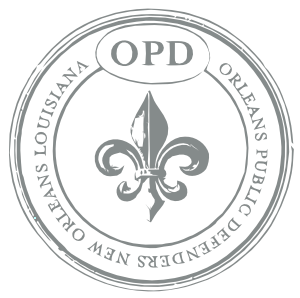
What may seem like an unusual partnership is an innovative initiative by Tulane School of Medicine to connect students to the New Orleans community, expose them to the challenges that underserved populations are facing today, and provide support to community-based agencies.
Having spent time at University Hospital trauma center and a psychiatry rotation at the Feliciana Forensic Facility in Jackson, La., Max says his interaction with inmates, who far too often were undiagnosed or misdiagnosed, led him to choosing OPD for his rotation. “The vast majority of patients I saw transported from the jails had some sort of psychiatric issue and most were not receiving the care they needed,” said Max. “I wanted to see the work from the point of view of the defenders and figure out why some of these problems are so endemic.”
The community health clerkship is a month-long requirement Tulane medical students complete in their 3rd or 4th year. The program’s director Ashley Wennerstrom described its focus as an effort to help future physicians gain a better understanding of how social issues affect people’s lives so they can ultimately deliver individualized care relevant to each patient’s unique family, community, and social circumstances.
For now, the future surgeon is expanding the reach of OPD’s client-centered defense practice by looking at the entire client, his entire story as an individual, and providing crucial assessments from a medical perspective. Those assessments help build individualized defenses and very often are the catalyst for an inmate getting medical care or a client receiving much-needed treatment services instead of more jail time.




